As controversy continued to build this week over the actions of Dunbar High School’s Doug Williams in pinching and photographing male students, some local officials and observers have begun to question the initial response of the Fort Worth school district to those allegations — and indeed to question the district’s handling of potential sexual misconduct complaints in general.
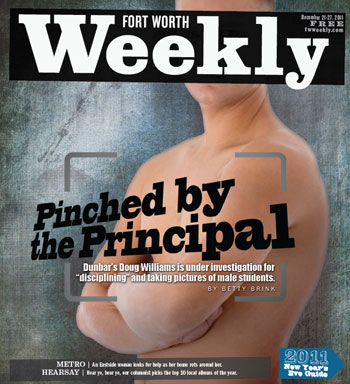 Problems at the Eastside school in the Stop Six neighborhood began to surface in September, but it was only this month that interim Superintendent Walter Dansby stepped in to put Williams on administrative leave pending the outcome of an investigation. Fort Worth Weekly reported that action in a story posted on its web site on Dec. 17.
Problems at the Eastside school in the Stop Six neighborhood began to surface in September, but it was only this month that interim Superintendent Walter Dansby stepped in to put Williams on administrative leave pending the outcome of an investigation. Fort Worth Weekly reported that action in a story posted on its web site on Dec. 17.
Dansby said that Williams had admitted to pinching male students on the nipples, but that the principal claimed it was a form of discipline. Dansby said Williams also acknowledged posing and photographing at least three young men without their shirts, but Williams said the pictures were taken at the boys’ request. Williams has not returned calls from the Weekly seeking comment.
Since that initial story, a source close to the investigation has told the Weekly that Mike Menchaca, head of the district’s Office of Professional Standards, looked into the allegations but closed the case without determining guilt because he concluded that the boys who made the allegations were not credible — even though Williams admitted the actions. That source, like many school district employees quoted in this story, asked not to be named because they fear reprisals.
Dansby said that Williams received some sort of disciplinary action following that initial investigation, but the superintendent would not disclose specifics, citing privacy concerns.
However, privacy for the students seems to have slipped through the cracks. The same source said this week that Williams discovered the names of his accusers because they were interviewed in rooms near Williams’ office — and in one case actually in Williams’ office with the principal present.
A Dunbar employee reported the boys’ allegations to district officials and to the Fort Worth Police security officers at the school in September and October, and also told the boys to tell their parents about the incidents.
But the police department’s records division found no reports filed regarding alleged abuses at Dunbar in October. Calls to the police department’s security office at Dunbar were not returned. No criminal charges have been filed against Williams.
What’s more, it appears that no one in authority, either at the school or in district administrative offices, reported the incidents to Texas Child Protective Services — and that failing has outraged many people interviewed for this story.
A district administrator, who is an interventionist in sexual harassment and abuse cases and has a background in social work, said that by law and district policy, “CPS … should have been alerted the first time the allegations were reported. If someone on campus had [direct] knowledge, he or she is considered ‘first report’ by state law and has a legal duty and obligation to call CPS or the Fort Worth police department.”
The district’s code of conduct for educators states, “Employees are required by state law to promptly report any suspected child abuse or neglect to Child Protective Services.” They are directed to make such a report “within 48 hours of the event that led to the suspicion.”
A CPS worker, who asked that her name not be used because she is not authorized to speak to the press, said that the employee who first reported the pinching incidents to the Dunbar security officers “did the right thing.”
Whether this rises to the level of sexual harassment or abuse would have to be investigated, she said. “But it certainly is inappropriate touching.”
Sharon Herrera, the district’s former sexual harassment trainer, said situations such as the one at Dunbar could be avoided if the district would get serious about implementing its sexual harassment and anti-bullying policies and conduct district-wide training about what constitutes sexual harassment, how to recognize it, how to report it, and how to avoid it.
Two years ago, she developed and began carrying out a program to do just that, only to have it shut down, under the administration of former schools superintendent Melody Johnson. Herrera’s supporters say the program was mothballed and Herrera transferred because her program resulted in so many cases of sexual harassment being reported.
“What parent would allow this to happen to their child?” Herrera said, regarding the Dunbar situation. “This should not be happening, not under our watch. We are here to serve children, not to allow them to be abused.”
One of the students whose complaints were forwarded to police and district officials in October told the Dunbar employee that Williams had been pinching him on the nipples for more than a year — and that the principal had recently begun doing the same thing to the student’s younger brother.
Another student told the employee that when he “got mad” because of Williams’ pinching, the principal sent him to detention.
Others at Dunbar have told the Weekly that they knew of such behavior going on at Dunbar for several years, but employees were afraid to report it.
Herrera said that is not surprising. “It is fear of retaliation,” she said, “and it is still widespread throughout the district” in spite of Dansby’s assurances that his office will not allow retaliation.
*************
“The school’s responsibility is to provide a safe environment for all students.” — U.S. Department of Education, Office of Civil Rights on Sexual Harassment
“The educator shall not intentionally, knowingly, or recklessly engage in physical mistreatment, neglect, or abuse of a student or minor.” — Texas Administrative Code
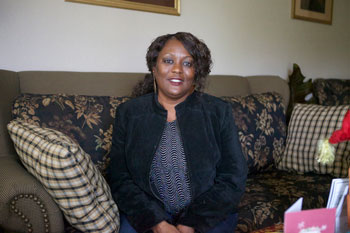 The well-respected Dunbar employee who initially passed on the student complaints about Williams laid them out in a chronology presented to district officials:
The well-respected Dunbar employee who initially passed on the student complaints about Williams laid them out in a chronology presented to district officials:
“On Sept. 22, 2011, [student A] reported witnessing Mr. Doug Williams pinching [student B] on the nipples. I asked [student B] about the incident, and he stated that it happened. I told both boys to report to their parents. The next day, both boys told me that they reported it to their parents, and [student B] told me that his mother was going to report it to the school district.
“On Monday, Oct. 3, 2011, [student B] told me he was to make a statement at the district office at 5 p.m.
“On Thursday, Oct. 6, 2011, at 7:15 pm., [student B] reported to me that Mr. Williams pinched him again on the nipples as well as [student C and student D.] On Friday, Oct. 7, 2011 at 7:15 am, I reported the incident to [my supervisor].
“At 7:25 am, Oct. 7, 2011, I told security that several [students] have been pinched and I would bring them to security to file a complaint. On 4th period, I pulled [student C and student D] out of class for a brief moment and asked if they were pinched. They replied ‘yes.’ On 8th period, I told them to go to security and report it.
“While reporting, [student D] stated that he has been getting pinched on the nipple on several occasions all of last year and this school year. He also stated that Mr. Doug Williams had started pinching his little brother on the nipple several times this year.
“[Student C] stated that when he got pinched on the nipple by Mr. Williams and got mad, Mr. Williams sent him to in-house [detention].
“During these reports, security stated that another student [student E] got pinched on the nipples by Mr. Williams. [Student E] made his report after witnessing Mr. Williams pinching another student … on his nipple. I reposted all of these incidents to the parents.”
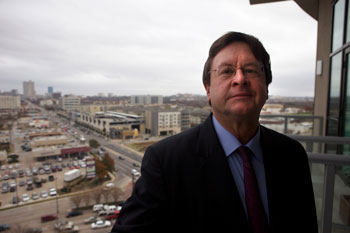 The document was initially given to district authorities as part of an investigation of Williams’ behavior in October. The employee who made the report said that the boys told him the pinching was “painful and humiliating.”
The document was initially given to district authorities as part of an investigation of Williams’ behavior in October. The employee who made the report said that the boys told him the pinching was “painful and humiliating.”
When Dansby questioned Williams about the report in early December, the superintendent said Williams explained that he disciplined students, usually athletes who were tardy to class, by going up to them and pinching their nipples and saying something like, “Get to class on time from now on.”
A coach at another high school here, who asked not to be named, said the idea of pinching students’ nipples as a disciplinary measure is ludicrous. “In all my years of coaching, I have never heard of anything like this,” he said. Even in earlier years, when educators were allowed to spank or otherwise physically punish students, and male student athletes were treated more roughly, pinching would not have been allowed, he said. “This is totally unacceptable and cruel.”
“I am shocked and upset” at hearing of the principal’s admission that he pinched boys’ nipples, said Melinda Hamilton, a community activist and president of the East Fort Worth Neighborhood Association. She is also the mother of former students at Dunbar and still volunteers there.
“The district took the right action” in suspending Williams, she said. “But what I want to know now is, where are our community leaders on this? Where is [Dunbar board member] Christene Moss, and [the area’s state representative] Marc Veasey? Who knew and what is going to be done? … Dunbar has so many problems with its low test scores, the district needs to be focusing its attention on educating these children.”
Moss, who said only that she knew of an investigation, declined to comment until the investigation is complete. Veasey, who is running for the newly drawn 33rd congressional seat that will include Stop Six, could not be reached for comment.
Failing to report the pinching allegations to CPS might also be a violation of both district policy and state law.
The school district’s student handbook includes a section called “freedom from discrimination, harassment, and retaliation.” It states that sexual harassment of a student is prohibited where the harassment is so “severe, persistent, or pervasive that it … creates an intimidating, threatening, hostile, or offensive educational environment.” Examples of sexual harassment include “touching intimate body parts.”
Under federal law, every school district that receives federal funds must have a Title IX coordinator to whom reports of sexual or physical abuse must be reported and who is required to set up sexual harassment training programs for employees. In Fort Worth, that person is Rufino Mendoza. Calls to his office were not returned.
Fort Worth attorney Chuck Noteboom, who handles child abuse cases, said it’s not clear whether the nipple-pinching rises to the level of criminal sexual abuse or another crime, such as assault. There’s also a possibility that the victims could sue, he said, but suing the school district itself would be very difficult under state law. “You can sue an individual employee, who usually has no money, but you can’t go after the district because it has sovereign immunity,” he said.
When Williams was asked about photographing male students with their shirts off, he reportedly told Dansby the boys had asked him to take the pictures. But at least one of the boys disputed that, in conversation with a second Dunbar employee, who reported the picture-taking sessions to Dansby last week.
According to that longtime employee, the boys said that Williams met them in the field house after hours, when few people were left on campus, and asked them to take off their shirts and stand in front of a black cloth hung as a backdrop. The boys told the employee that Williams gave them footballs and basketballs to hold and posed the boys in various positions.
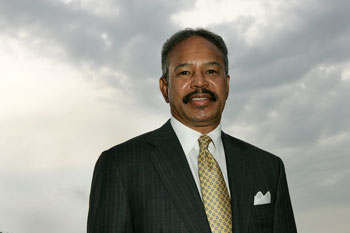 The employee had seen the pictures accidentally, in walking up behind Williams in the hall. “He quickly put them back in an envelope and walked away,” the employee said.
The employee had seen the pictures accidentally, in walking up behind Williams in the hall. “He quickly put them back in an envelope and walked away,” the employee said.
“I was outraged,” the employee said. “This is not an appropriate thing for an adult to be doing to a child.” The employee knows one of the boys involved, and the boy said that he felt uncomfortable after the pictures were taken. The employee spent a lot of time counseling the student.
“I know this boy, he’s a bright student,” the employee said. “He’s very embarrassed now that he allowed the pictures to be taken. But he is a kid, and when the principal approaches with such a suggestion, it is difficult to understand that it’s OK to say no to such an authority figure.”
Williams is an amateur photographer who is often seen around the campus taking pictures of students, the employee said.
Dansby said he was not sure if Williams had received written permission from parents or guardians, as required by school policy, to take the boys’ pictures.
The Rev. Kyev Tatum, a long-time critic of the school district for what he sees as its discrimination against minority students, has no first-hand knowledge of Williams’ actions. But he said that Dansby “did the right thing” by putting Williams on leave.
Tatum, who said he was abused by a trusted person when he was six, understands the fear that holds people back from reporting such behavior, he said.
“But we must … take these issues as our own, and protect our children. We must talk about them and report them when we see them happening,” he said.
************
Fort Worth schools trustee Carlos Vasquez, who represents the North Side, was one of those who is upset by the allegations at Dunbar, and by the apparent failure of some school officials to act on the early reports.
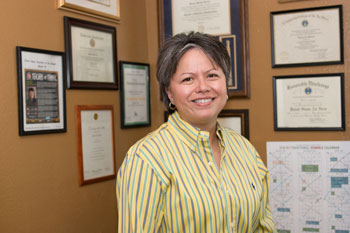 “I am very disappointed and outraged that if these accusations are true, this matter was not taken care of properly and in a timely manner,” he wrote in an e-mail to Fort Worth Weekly. “I was not aware of the allegations against the principal until the day before his suspension. It is … very clear that educators have a moral and legal obligation to report any type of suspected abuse against our students. I am not sure who failed our students, but it is totally unacceptable. Strong and appropriate actions should be taken.”
“I am very disappointed and outraged that if these accusations are true, this matter was not taken care of properly and in a timely manner,” he wrote in an e-mail to Fort Worth Weekly. “I was not aware of the allegations against the principal until the day before his suspension. It is … very clear that educators have a moral and legal obligation to report any type of suspected abuse against our students. I am not sure who failed our students, but it is totally unacceptable. Strong and appropriate actions should be taken.”
Herrera believes that the program she put together for the school district would have made clear to administrators and employees across the district what their responsibilities are in situations like what happened at Dunbar.
She worked with the Dallas office of the Equal Employment Opportunity Commission to design a training program and a series of “It’s Not Okay” sexual harassment posters to be put up throughout the district.
“When grave issues were reported to me about student abuse, it was reported to CPS immediately,” she said. “And everyone I trained knew to do that. … Any type of hands-on discipline is strictly prohibited,” she said.
Although she was allowed to develop the program, Herrera said, there was resistance from members of the Johnson administration. “The thought was that by doing this, it may look like we had ‘problems’ in the district,” she said.
Now, she said, employees tell her that very little training is going on. She was pulled from the job before she ever got to put on training sessions at Dunbar, and none has been done since she left, she said.
As “a parent and servant of children,” she said, she believes that “pinching children’s nipples and taking half-nude pictures” amounts to a problem that “requires another type of professional to be involved, not our district officials.”
The Stop Six community is one of Fort Worth’s oldest historically African-American neighborhoods, established in the 1920s on the last Fort Worth stop of the interurban line that ran to Dallas. Most residents now are black or Hispanic, with incomes that fall below the poverty level.
At Dunbar, 62 percent of students qualify for the free lunch program. The school’s overall academic achievement test scores have been dismal for the past several years. Williams was brought in four years ago by Johnson in hopes he could turn the school’s academic failures around. Even though there were improvements this year, the school is still rated “academically unacceptable” by the Texas Education Agency for failing to meet the minimum standards on the state’s Texas Assessment of Knowledge and Skills test.
Now Williams is on leave, and his future is uncertain. Some supporters, including Hamilton, fear that the future of the school is uncertain as well.
Ernest Mackey, who has grandkids in Dunbar and works to help promote the school’s athletic and academic programs, said he is confident that Dansby will “get to the bottom of this” and make the right decision.
“Mr. Dansby is a thorough, honest, and top-notch administrator,” he said. “This [kind of behavior] will stop.”











